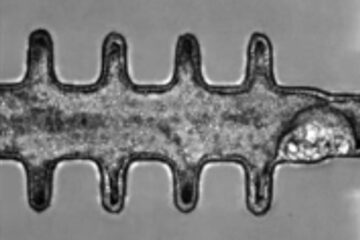Attack of the crazy ants – invasional ’meltdown’ on an oceanic island

Biological invasions have well-known direct effects on native ecosystems but may also unleash forces with complex, unexpected consequences. These ecological surprises may be especially common in simple systems, like islands, following introduction of ’megainvaders,’ like tramp ants.
In the September issue of Ecology Letters, O’Dowd, Green, and Lake show that impacts of invasion by the crazy ant Anoplolepis gracilipes ramify through the food web in rainforest on Christmas Island, totally reconfiguring this ecosystem in just 1-2 years.
On the forest floor, crazy ant supercolonies extirpate the dominant native omnivore, which indirectly increases seedling recruitment but slows litter decomposition. In the forest canopy, new ant-Homoptera partnerships accelerate, exacerbate, and diversify impacts. Sustained high densities of ants are associated with outbreaks of host-generalist scale insects and honeydew-dependent sooty moulds, leading to canopy dieback and even tree deaths.
The indirect fallout from the displacement of a native keystone species by an ant invader, itself abetted by introduced mutualists, precipitates invasional ’meltdown’ in this island ecosystem. Even in simple systems, unforeseen effects and novel associations following introduction of a single alien species can make forecasting of impacts an elusive goal.
Media Contact
More Information:
http://www.blackwell-synergy.com/All latest news from the category: Ecology, The Environment and Conservation
This complex theme deals primarily with interactions between organisms and the environmental factors that impact them, but to a greater extent between individual inanimate environmental factors.
innovations-report offers informative reports and articles on topics such as climate protection, landscape conservation, ecological systems, wildlife and nature parks and ecosystem efficiency and balance.
Newest articles

Solving the riddle of the sphingolipids in coronary artery disease
Weill Cornell Medicine investigators have uncovered a way to unleash in blood vessels the protective effects of a type of fat-related molecule known as a sphingolipid, suggesting a promising new…

Rocks with the oldest evidence yet of Earth’s magnetic field
The 3.7 billion-year-old rocks may extend the magnetic field’s age by 200 million years. Geologists at MIT and Oxford University have uncovered ancient rocks in Greenland that bear the oldest…

Mini-colons revolutionize colorectal cancer research
As our battle against cancer rages on, the quest for more sophisticated and realistic models to study tumor development has never been more critical. Until now, research has relied on…





















